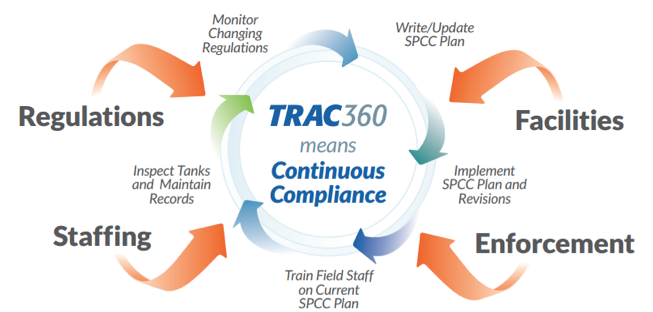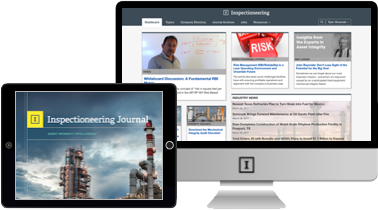Several catastrophic spills over the past few years have sparked significant interest in oil spill prevention across the industry. Not only do facilities with large amounts of oil want to prevent environmental damage, loss of product, and civil lawsuits, but, assuming their operations are based in the United States, they must also comply with the U.S. Environmental Protection Agency’s (EPA) Spill Prevention, Control, and Countermeasure (SPCC) regulations.
SPCC regulations require certain facilities with large amounts of oil to perform specific tasks in order to show the EPA that they are actively working to prevent leakage into U.S. navigable waters. SPCC is atypical of most environmental compliance rules because it focuses on prevention. This means that, unlike many other environmental regulations, a facility can be found in violation without ever having a pollution mishap (in this case, an oil spill). It used to be (unofficially) that the EPA would inspect facilities for SPCC only if they had a spill, but the big spills of the past few years, such as the Deepwater Horizon, have put pressure on the EPA to audit any regulated facility in addition to those that have experienced a spill event. This increased chance of facing a random compliance inspection by the Agency has heightened industry awareness, and many owner-operators are currently evaluating the status of their SPCC compliance.
The good news is there are many benefits for companies who adopt a corporate policy to reduce preventable oil spills and invest in a well-written SPCC plan, a compliant tank inspection program, and comprehensive SPCC training for oil-handling personnel. Not only does a complete program reduce your chances of an EPA enforcement action, but it significantly decreases your risk of actually having an oil spill. Keeping your oil contained in your tanks provides a good public relations opportunity by promoting a safer workplace and community – things customers are starting to really care about. It also reduces costs involved with loss of product.
This growing interest in compliance and available technology has prompted the development of new software tools to take the pain out of SPCC compliance and help facilities reduce regulatory risk. These new platforms can offer plan writing tools, inspection checklists, reference materials, and training from secure, cloud-based servers.

Note: Approximately one-third of SPCC regulated facilities are required to have their plans certified by a licensed professional engineer (PE) who is familiar with the facility and the plan. As per the regulations at 40 CFR 112, software alone cannot provide PE certification of plans.
















Comments and Discussion
There are no comments yet.
Add a Comment
Please log in or register to participate in comments and discussions.